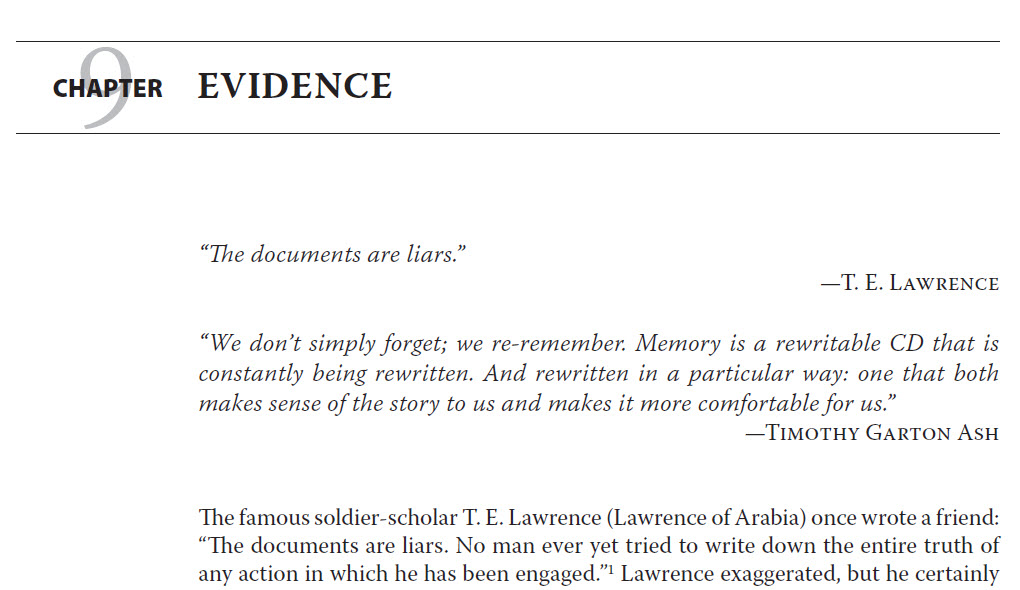3 June 2014
You’ve found a great book in an HTML version online. The epigraph to page 139 (you DO, of course, remember what an epigraph is, from our recent Wednesday’s Words) has a great quote from Lawrence of Arabia that you want to cite. Citing a quote from a book should be as easy as describing candy in a candy store, right?
So let’s see what you come up with. Here’s the link to the book page. http://home.ku.edu.tr/~mbaker/hist103/FuraySalevouris/FuraySalevourisChap9.pdf We’ll let you wrestle with it a while. Then, tonight or tomorrow, we’ll give you our take on this doozie of a situation.

Sourcing an epigraph
I know it subverts the lesson, but if a quotation was important enough to me I'd blow right past the epigraph and try to establish the quotation's accuracy and context by consulting its original use--in this case Lawrence's letter to Lionel Curtis in Garnett's Letters of T.E. Lawrence or Jeremy Wilson's T.E. Lawrence Studies website.
Sourcing an epigraph
Un-hunh, dzochert. That does 'subvert the lesson' {smile}.
You've made an excellent point. On the other hand, when we find a source such as the one at the cited link, we still need to be able to cite what we find. More often than not, it is not possible for us to do, in that same research segment, all the follow-up research we'd like to do. We may not have the time or we may not have access to the other materials needed. If we cannot cite what it is we did find, then we may not be able to find it again when we come back to this research issue.
Care to tackle the problem at the linked site?
I would cite what I use, and
I would cite what I use, and then use "citing" to cite the original citation, which leads to something like this:
Conal Furay, Michael J. Salevouris, The Methods and Skills of History: A Practical Guide, 3d ed. (Hoboken, New Jersey, USA: Wiley-Blackwell, 2009), 139; PDF, Mark Baker, Hist 103: Introduction to History, reading material for "Interpreting Evidence, how to read sources" (http://home.ku.edu.tr/~mbaker/Hist103/FuraySalevouris/FuraySalevourisChap9.pdf : accessed 3 June 2014); citing "T.E. Lawrence."
My, that's a long citation for such a short quote! It would definitely been easier to trace the original, as per dzochert's suggestion!